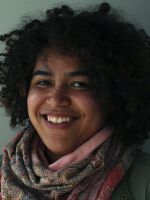Imagine you're looking at a map of the St. Louis region. Now fold that map in half horizontally.
Below the fold, you'd mostly see healthy people living long lives, having no trouble finding doctors or hospitals or fresh fruit and vegetables. Above the fold, you'd see a different, starker picture. Above the fold, there are fewer healthy people, higher rates of infant mortality and few hospitals.
Actually, you don't have to imagine that fold in the map. In many ways, it really exists in the form of Delmar Boulevard. And while most people think of the "Delmar Divide," as simply a line that separates a mostly white community to the south and a mostly black community to the north, the reality is that the divide represents huge disparities in health.
"Segregation is here and now," said Jason Purnell, assistant professor at the Brown School at Washington University. "The fact is, Gov. [George] Wallace's vision of America has won over Dr [Martin Luther] King's. He said segregation now; segregation tomorrow; segregation forever. So far, Wallace was right. It's morphed. It looks a little different. We don't have 'whites only' signs. But we have those realities. And it's killing us literally. It's literally killing us. And the us there should be underlined. It's not just killing black people. It's killing us as a region."

Purnell's word are harsh. But if anyone should know what he's talking about, it's Purnell. He's lead author of a massive, multi-year study of the health of the region's African Americans called For the Sake of All.
We talked to Purnell because We Live Here is turning its attention to health and what happens when one segment of the population routinely cannot get access to things that would improve their health. We're not just talking about health care; we're talking about health and all the things that keep us healthy: fresh food, good housing, solid education and access to transportation, for example.
In order to understand how access to these things impacts the lives of real people, we are stepping back to get an overview of the problem in terms of numbers and statistics. Here are just a few key items from the For Sake of All study.
- Average home values north of Delmar in St. Louis: $78,000.
- Average home value in St. Louis south of Delmar: $310,000.
- Percentage of whites in St. Louis County who say it's easy to purchase healthy food in their neighborhood: 91.
- Percentage of African Americans who say it's easy to purchase healthy food in their neighborhood: 71.
- Percentage of whites who received inadequate prenatal care in St. Louis County: 5.
- Percentage of African Americans who received inadequate prenatal care in St. Louis County: 27.
- Infant death rate for whites in St. Louis: 5 per 1,000.
- Infant death rate for African Americans in St. Louis: 15 per 1,000.
- Percentage of all households in north St. Louis and north St. Louis County that have no credit record: 35.
- Average life expectancy in Clayton, MO (zip code: 63105): 85 years
- Average life expectancy in north St. Louis (zip code: 63106): 67 years.
As We Live Here explores health disparities in the St. Louis region, we'll make the connections that show how poor health statistics in an area are linked to diminished chances of graduating high school or holding a steady job and increased risk of ending up in prison.




